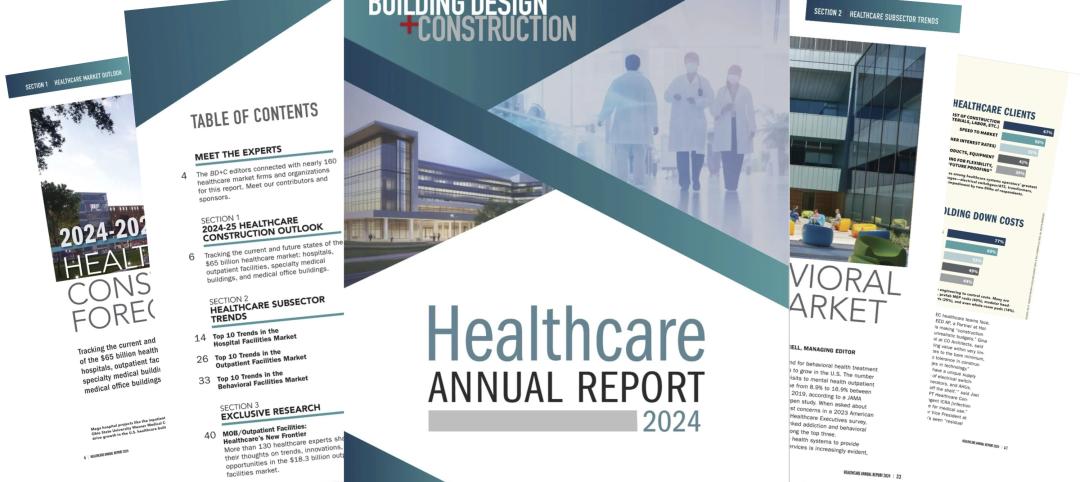Associated Builders and Contractors (ABC) released its Construction Backlog Indicator (CBI) for the first quarter of 2012. CBI declined 5.4% from the previous quarter, dipping from 7.8 months to 7.4 months, but is slightly higher compared to the first quarter of 2011.
“On the heels of a mixed bag of national economic news, CBI declined for the second quarter in a row,” said ABC Chief Economist Anirban Basu. “The lull in nonresidential construction momentum is not poised to end in the immediate term. The nation’s nonresidential construction activity will remain soft during the summer months, with flat to declining nonresidential construction spending.
“The ongoing instability in the nation’s nonresidential construction industry appears to be related to the period of economic weakness that developed in the broader economy last year, as well as concerns regarding export growth due to recessionary forces in Europe,” Basu said. “The result is that many prospective construction projects were cancelled or postponed.”
Regional highlights
- Compared to the first quarter of 2011, construction backlog is slightly higher in every region with the exception of the Northeast.
- In the West, construction backlog expanded by 0.46 months from the fourth quarter of 2011 to the first quarter of this year.
- The Middle States have the shortest backlog at 6.34 months and the South continues to register the lengthiest backlog at 8.88 months.
Analysis
“The South, which includes a number of rapidly expanding, commodity rich states, continues to be the top performer in terms of producing new opportunities for contractors,” said Basu. “Though average construction backlog in the South was roughly flat during the past quarter, backlog is up by seven-tenths of a month from one year ago. No other region has generated an increase in backlog that large.
“Construction backlog expansion in the Middle States continues to be stifled,” Basu said. “Gains in industrial production have been sporadic during the past year – too scattered to induce the next wave of manufacturing-related construction projects. In addition, average construction backlog in the Northeast has fallen on a year-over-year basis. Last year’s soft patch, including the economic weakness associated with the debt ceiling issue, appears to have impacted the financial institution-rich Northeast more than other region.” +
Related Stories
Codes and Standards | Jul 15, 2024
New York City code update changes definition of a major building
Changes affecting how construction projects in New York City are permitted will have significant impacts for contractors. On Dec. 11, the definition of a major building in the city’s code will change from 10 stories to seven, or 75 feet. The change will affect thousands more projects.
Adaptive Reuse | Jul 12, 2024
Detroit’s Michigan Central Station, centerpiece of innovation hub, opens
The recently opened Michigan Central Station in Detroit is the centerpiece of a 30-acre technology and cultural hub that will include development of urban transportation solutions. The six-year adaptive reuse project of the 640,000 sf historic station, created by the same architect as New York’s Grand Central Station, is the latest sign of a reinvigorating Detroit.
University Buildings | Jul 11, 2024
3 considerations for designing healthy, adaptable student dining
Amanda Vigneau, IIDA, NCDIQ, LEED ID+C, Director, Shepley Bulfinch, shares three ways student dining facilities have evolved to match changes in student life.
Healthcare Facilities | Jul 11, 2024
New download: BD+C's 2024 Healthcare Annual Report
Welcome to Building Design+Construction’s 2024 Healthcare Annual Report. This free 66-page special report is our first-ever “state of the state” update on the $65 billion healthcare construction sector.
Transit Facilities | Jul 10, 2024
Historic Fresno train depot to be renovated for California high speed rail station project
A long-shuttered rail station in Fresno, Calif., will be renovated to serve as the city’s high speed rail (HSR) station as part of the California High-Speed Rail Authority system, the nation’s first high speed rail project. California’s HSR system will eventually link more than 800 miles of rail, served by up to 24 stations.
Government Buildings | Jul 8, 2024
GSA adopts new accessibility guidelines for federal properties
The U.S. General Services Administration (GSA) adopted a new rule with new accessibility guidelines for federal buildings. The rule establishes that pedestrian facilities in the public right-of-way are readily accessible to and usable by people with disabilities.
Office Buildings | Jul 8, 2024
Office vacancy peak of 22% to 28% forecasted for 2026
The work from home trend will continue to put pressure on the office real estate market, with peak vacancy of between 22% and 28% in 2026, according to a forecast by Moody’s.
Virtual Reality | Jul 8, 2024
Can a VR-enabled AEC firm transform your project?
With the aid of virtual reality and three-dimensional visualization technologies, designers, consultants, and their clients can envision a place as though the project were in a later stage.
Green | Jul 8, 2024
Global green building alliance releases guide for $35 trillion investment to achieve net zero, meet global energy transition goals
The international alliance of UK-based Building Research Establishment (BRE), the Green Building Council of Australia (GBCA), the Singapore Green Building Council (SGBC), the U.S. Green Building Council (USGBC), and the Alliance HQE-GBC France developed the guide, Financing Transformation: A Guide to Green Building for Green Bonds and Green Loans, to strengthen global cooperation between the finance and real estate sectors.
Codes and Standards | Jul 8, 2024
New York State building code update would ban fossil fuels in new buildings
New York’s Building Code Council is set to include the All-Electric Buildings Act in its 2025 code update. The Act would ban natural gas and other fossil fuels in new buildings.

















